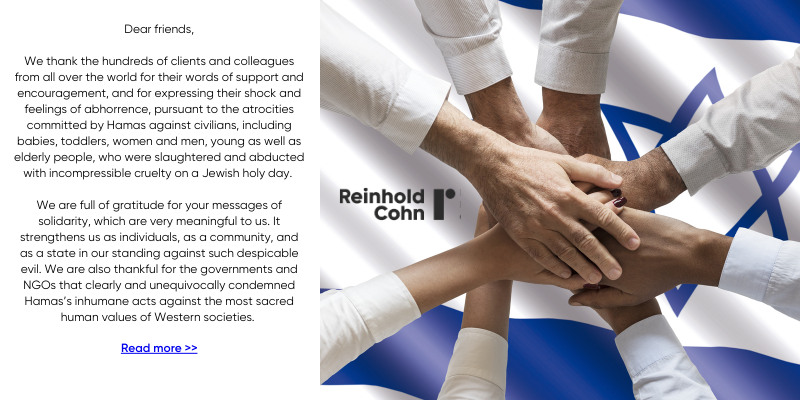משרד המשפטים הישראלי מאמץ את סיווג לוקרנו לסיווגם של מדגמים

A draft amendment of the Israeli Designs Regulations pertaining to classification of industrial designs was recently published, which by and large adopts the Locarno international classification. This classification is better adapted to the modern business environment and reflects the increasing importance of the registration of designs as an effective tool in protecting specific intellectual property rights.
For the purpose of registration, an industrial design must be classified in one of the classes in the Third Schedule of the Designs Regulations, 1925. The classification is of formal significance since without it the design will not be registered. However, the more substantive significanceis that in the course of examination, the examiner will determine the appropriateness of the classification, and in order to establish the design's eligibility for registration will conduct a search for prior designs in said class. Moreover, accurate classification of a design also impacts the scope of protection.
The Israeli Ministry of Justice recently published on the website of the Israeli Patent Office (ILPO) a draft amendment of the Designs Regulations. The draft, entitled "Designs Regulations (Classification of Goods) (Amendment), 2012", is intended to update the classification set forth in the Third Schedule of the Designs Regulations, 1925, and address the growing need to register industrial designs that was unavailable when the classification was last updated in 1978.
According to said draft, the Locarno Classification, which was last updated in 2008, is almost fully adopted. The Locarno Classification is an international classification created by virtue of the Locarno Agreement signed in 1968. The Locarno Agreement currently comprises 52 member states, but Israel is not a member. Many non-member states have adopted the Locarno Classification, and now Israel intends to do the same.
Similar to the present classification, the new list includes classes and subclasses. For example, Class 1 is intended for "Foodstuffs" and includes, inter alia, "Bakers' products, biscuits, pastry, macaroni and other cereal products, chocolates, confectionery, ices" (01-01), "Fruit and vegetables" (01-02), and so on.
Beyond modernizing the archaic language of the old classification, the new classification introduces a number of substantive changes, including the addition of a special class (14-04) for "Screen displays and icons", a class that did not previously exist. The new class thus permits registration of designs for icons and screen displays (not limited to computers only). This class is of special importance, as evidenced by the worldwide legal battle between Apple and Samsung, where such designs play an important role together with the increasing awareness of the importance of design protection for safeguarding intellectual property rights in this field. The ILPO currently permits registration of such designs in several other classes, subject to specific conditions.
Another important change is the addition of subclass 99 in each class for "Miscellaneous". Such subclass will permit greater flexibility in those cases where there is no fitting definition for the design applied for. However, the new list does not include class 32-00 of the Locarno Classification, for "graphic symbols and logos, surface patterns, ornamentations", which may in part be protected under other classes.
The new classification will ease the registration process, in particular for applications claiming priority from applications filed in jurisdictions that apply the Locarno Classification.
November 4, 2012 was set as a deadline for submitting comments on the draft amendment and, to the best of our knowledge, no objections were submitted. We hope that a final version of the new classification will be brought before the Minister of Justice for approval, within the next few months.
אין באמור במאמר כדי להוות עצה, הדרכה, ייעוץ או חוות-דעת בנושא, והוא מוגש כשירות ללקוח להעשרה כללית בלבד ולא לכל מטרה אחרת. בכל נושא ספציפי יש לפנות לעורכי הדין או עורכי הפטנטים הרלוונטיים במשרדנו.
